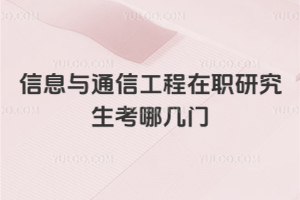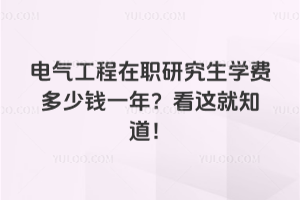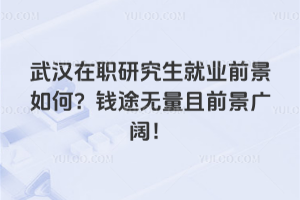- 微信公眾號(hào)

政策解讀
- 微信小程序

快速擇校

政策解讀

快速擇校
Unit Two
Passage 1
Exchange a glance with someone, then look away. Do you realize that you have made a statement? Hold the glance for a second longer, and you have made a different statement. Hold it for 3 seconds, and the meaning has changed again. For every social situation, there is a permissible time that you can hold a person’s gaze without being intimate, rude, or aggressive. If you are on an elevator, what gaze-time are you permitted? To answer this question, consider what you typically do. You very likely give other passengers a quick glance to size them up (打量) and to assure them that you mean no threat. Since being close to another person signals the possibility of interaction. You need to emit a signal telling others you want to be left alone. So you cut off eye contact, what sociologist Erving Goffman (1963) calls "a dimming of the lights." You look down at the floor, at the indicator lights, anywhere but into another passenger's eyes. Should you break the rule against staring at a stranger on an elevator, you will make the other person exceedingly uncomfortable, and you are likely to feel a bit strange yourself.
If you hold eye contact for more than 3 seconds, what are you telling another person? Much depends on the person and the situation. For instance, a man and a woman communicate interest in this manner. They typically gaze at each other for about 3 seconds at a time, then drop their eyes down for 3 seconds, before letting their eyes meet again. But if one man gives another man a 3-second-plus stare, he signals, "I know you ", "I am interested in you," or "You look peculiar and I am curious about you." This type of stare often produces hostile feelings.
1. It can be inferred from the first paragraph that______.
A. every glance has its significance
B. staring at a person is an expression of interest
C. a gaze longer than 3 seconds is unacceptable
D. a glance conveys more meaning than words
2. If you want to be left a1one on an elevator, the best thing to do is______.
A. to look into another passenger's eyes
B. to avoid eye contact with other passengers
C. to signal you are not a threat to anyone
D. to keep a distance from other passengers
3. By "a dimming of the lights" (Para. 1, Line l0) Erving Goffman means "______".
A. closing one's eyes B. turning off the lights
C. ceasing to glance at others D. reducing gaze--time to the minimum
4. If one is looked at by a stranger for too long, he tends to feel______.
A. depressed B. uneasy C. curious D. amused
5. The passage main1y discusses _______.
A. the limitations of eye contact
B. the exchange of ideas through eye contact
C. proper behavior in situations
D. the role of eye contact in interpersonal communication
特別聲明:①凡本網(wǎng)注明稿件來源為"原創(chuàng)"的,轉(zhuǎn)載必須注明"稿件來源:育路網(wǎng)",違者將依法追究責(zé)任;
②部分稿件來源于網(wǎng)絡(luò),如有侵權(quán),請(qǐng)聯(lián)系我們溝通解決。

信息與通信工程在職研究生若通過同等學(xué)力申碩方式,入學(xué)無需考試。申碩階段考試一般考外語(如英語、法語等)和專業(yè)課(涵蓋信號(hào)與系統(tǒng)、通信原理等)。考試通過標(biāo)準(zhǔn)為及格...

電氣工程在職研究生若通過同等學(xué)力申碩方式,學(xué)費(fèi)一年在1.4萬-1.79萬元左右(學(xué)制多為2年)。如華北電力大學(xué)學(xué)費(fèi)3萬元,平均一年1.5萬元;河北工業(yè)大學(xué)學(xué)費(fèi)2...

武漢在職研究生就業(yè)前景良好,錢景也頗為可觀。同等學(xué)力申碩入學(xué)門檻低,畢業(yè)后學(xué)位證受認(rèn)可,利于晉升漲薪;非全日制研究生學(xué)歷學(xué)位雙證在考公、國(guó)企招聘等中優(yōu)勢(shì)明顯。不...

本文匯總北京多所高校在職研究生招生簡(jiǎn)章,為職場(chǎng)人士提供全面報(bào)考指南。深入解析招生政策、報(bào)考條件及學(xué)習(xí)優(yōu)勢(shì),幫助您把握職業(yè)發(fā)展機(jī)遇。錯(cuò)過招生信息可能影響晉升機(jī)會(huì),...

在職醫(yī)生報(bào)考醫(yī)學(xué)在職研究生需全面了解報(bào)考流程和條件。報(bào)考流程包括選擇院校、在線報(bào)名、提交材料、參加考試等步驟,需關(guān)注各階段時(shí)間節(jié)點(diǎn)。報(bào)考條件涉及醫(yī)學(xué)相關(guān)本科學(xué)歷...

企業(yè)管理在職研究生好找工作嗎?是否好找工作,取決于多種因素。數(shù)字化使管理能力迭代,行業(yè)需求分化,核心能力升級(jí)。其就業(yè)有政策與市場(chǎng)認(rèn)可等優(yōu)勢(shì),院校、經(jīng)驗(yàn)與學(xué)歷匹配...
在職研究生
入學(xué)考試
在職研究生
有用嗎
在職研究生
如何報(bào)考
在職研究生
報(bào)考流程
在職研究生
報(bào)名條件
在職研究生
學(xué)費(fèi)一覽表
在職研究生
考哪些科目
在職研究生
怎么報(bào)名
在職研究生
一年考幾次
評(píng)論0
“無需登錄,可直接評(píng)論...”